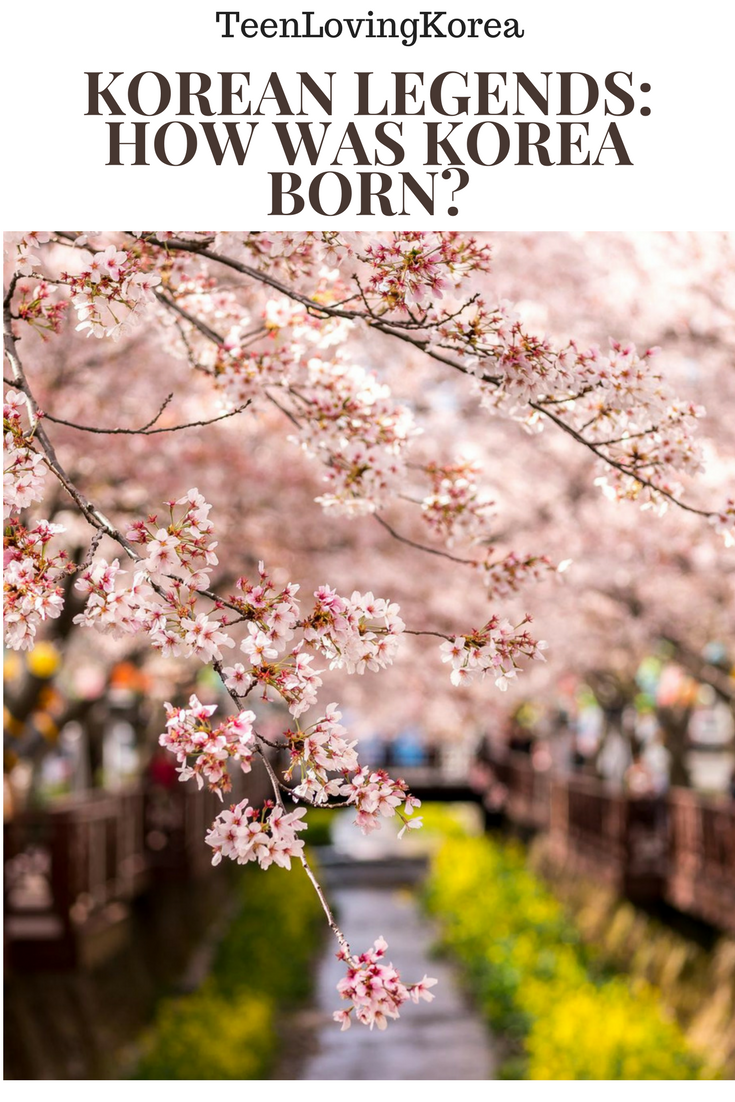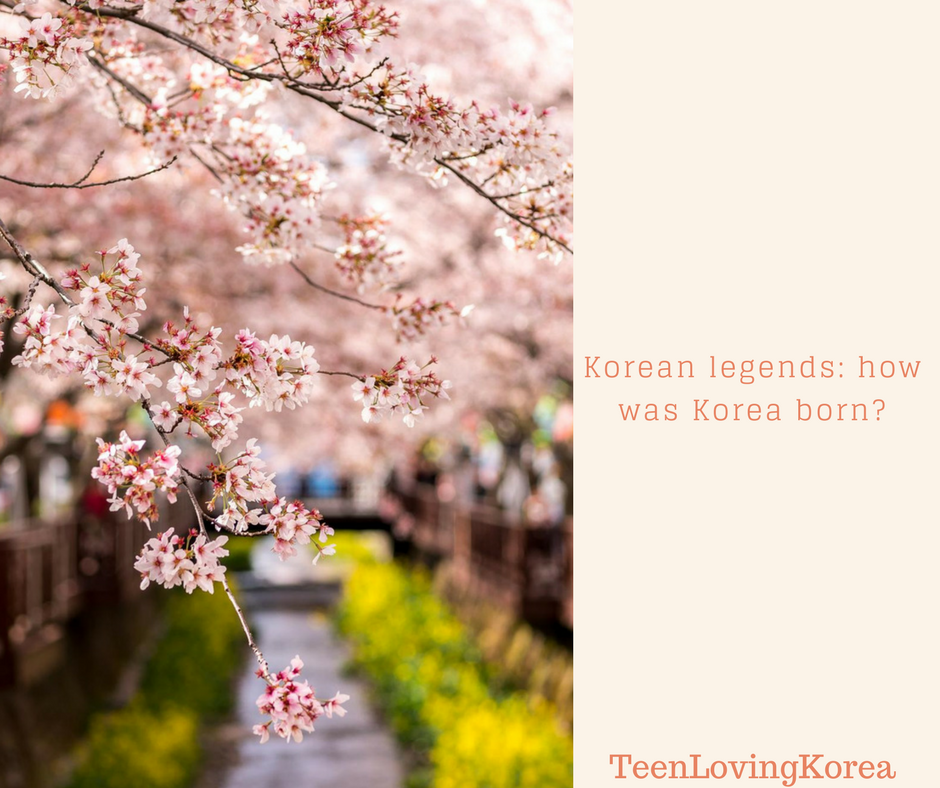On 3 October in Korea, you celebrate the Gaecheonjeol (개천절) which would be the National Day of the Korea Foundation. Now, many of you will think that this celebration refers to historical facts that actually happened or to people who actually lived, but no! On this date, they celebrate the myth of the founding of Korea that has very little realistic, but that is still an important part of the Korean culture to know when you enter this world and then I will tell you.
The story of Dangun
This story begins more or less 4,400 years ago in the realm of paradise. There lived a man named Hwanin “the lord of paradise” who had a son named Hwanung. As Hwanung grew older he began to yearn for life in the mountains and valleys of the earth. His desire was so great that his father became increasingly difficult to remain impassive at the sight of his son who wanted so much to live in the human world.
Eventually, Hwanin decided to grant Hwanung’s wish and chose Mount Taebaek for him as a place to begin his earthly life. He told him to rule and bring happiness to the humans who lived in those lands, but he made sure he had help in his mission. He sent with Hwanung 3000 helpers along with 3 of the seals of paradise: rain, wind, and clouds, to assist him in governing the city that Hwanung would have found. After establishing himself on earth, Hwanung founded Shinshi, also called the City of God.
Slowly Hwanung began to teach mortals the law and morals, the arts, medicine and the techniques of agriculture. The lives of humans had improved so much that even animals, seeing their happiness, began to wish to become human. Everyone gladly accepted to submit to Hwanung’s guidance and rules and live their lives enriched by new knowledge.
In the meantime, a bear and a tiger living in one of the caves of the kingdom of Hwanung wanted to become human beings and began to pray day and night for Hwanung to fulfill their wish. Hwanung heard their prayers and decided to give him the chance to become human but only under certain conditions. He told him that in order to become human they would have to spend 100 days in a cave with nothing but a handful of cloves of garlic and Artemisia as sustenance. If they could resist for all 100 days without leaving the cave, then overcoming their instincts and showing themselves obedient and diligent would be transformed into human beings.
Both animals gladly accepted the challenge and thanked Hwanung promising to eat only the food he had been given and to stay in the cave for 100 days. After a few days, however, the tiger, attacked by the dead of hunger, surrendered and left the cave, while the bear, who was determined to become human, resisted and followed diligently the instructions given to him by Hwanung.
After 100 days, the bear turned into a beautiful woman and received the name of Ungnyeo. Ungnyeo was infinitely grateful to Hwangun for what he had done for her, but somehow she still felt dissatisfied. Ungnyeo felt alone, so he decided to pray again under the sandal tree so that fate would bring someone to love. Hwanung heard his prayers again and decided to become a human in turn and to marry her. From the union of Ungnyeo and Hwanung then a child was born who was called Dangun Wanggeom.
Once he grew up Dangun then descended from Mount Taebaek and founded Gojeoson, ancient Korea.
It is thought that Dangun founded Gojeoson, the first kingdom of Korea, in 2333 a.c. and settled in its capital at Pyeongyang, the capital of present-day North Korea. Dangun then moved the capital to Asadal, which is thought to be on Mount Guwol in the province of Hwangae. Dangun kingdom for 1,500 years before abdicating, then decided to retreat into the mountains and became a Sanshin (an immortal spirit of the mountain) at the age of 1908 years.
This is the legend about how Korea was founded, and even if it seems very absurd it is enough to think of the legend of Romulus and Remus and the foundation of Rome. Every nation has its own myths and legends and I believe that these are the very ones that make a culture even more interesting.



